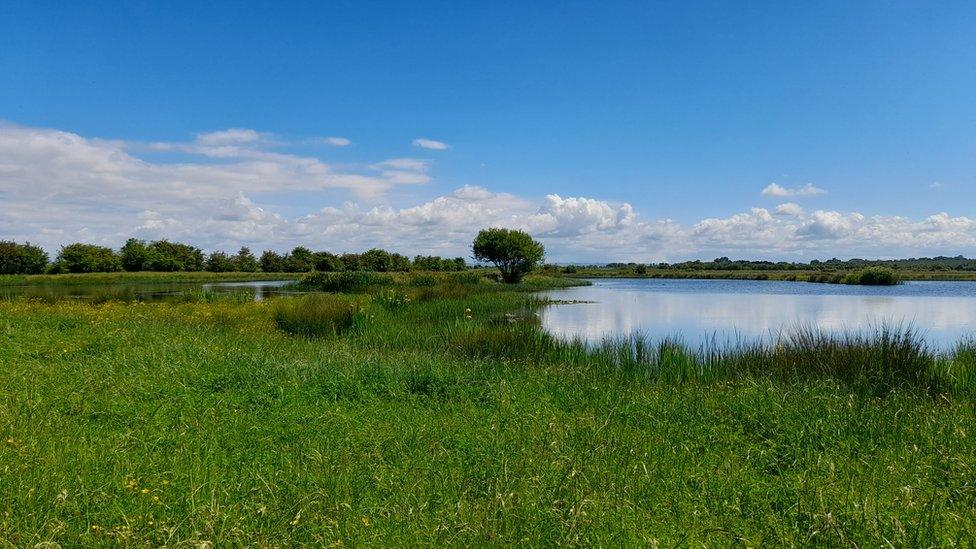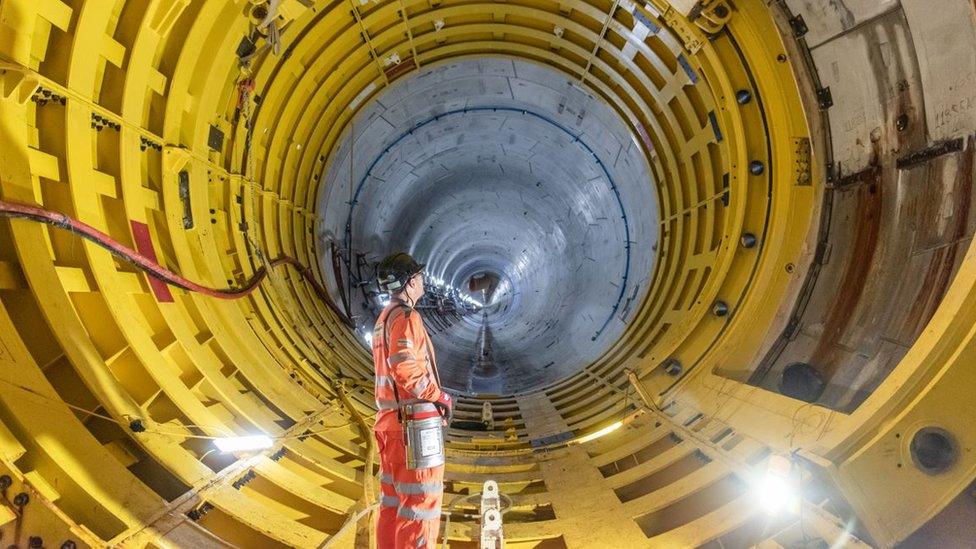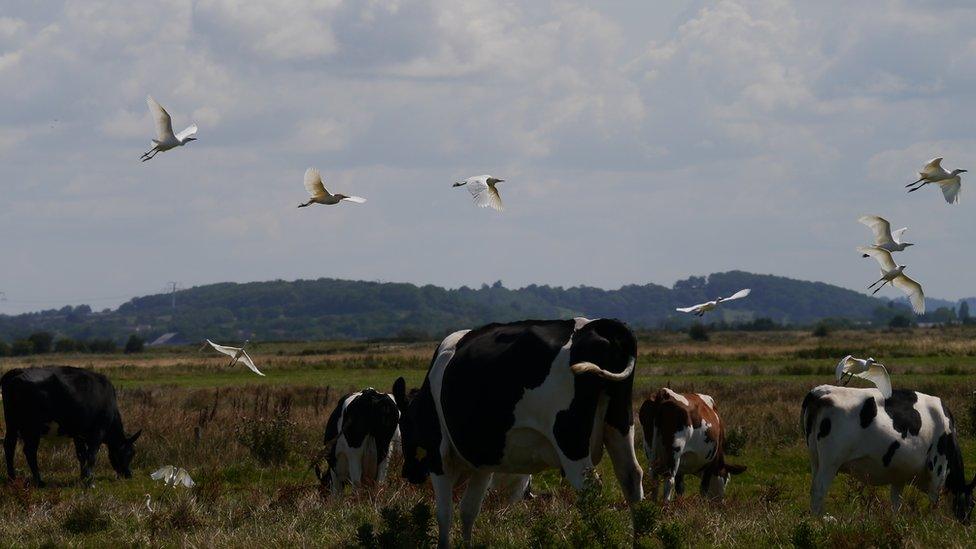Hinkley Point C: Fight against plan for new saltmarsh
- Published
- comments

Pawlett Hams is the equivalent of 320 football pitches on the banks of the River Parrett near Bridgwater
People living near a new nuclear power station are campaigning to stop the creation of a saltmarsh fish habitat.
Plans are being put forward by Hinkley Point C to try and create a new fish habitat away from where the power station is being constructed.
Local action group Protect Pawlett Hams said the site is already a "vibrant fresh water wetland and grazing land".
EDF Energy said Hinkley Point C is the first power station in the area to have any fish protection measures in place.

The reactor cooling system tunnels are 8m in height and will take in 132,000 litres of water per second
Hinkley Point C said the new saltmarsh would be a natural alternative to installing an alternative acoustic fish deterrent.
The deterrent system would have used 280 speakers to make noise underwater "louder than a jumbo jet" 24-hours a day for 60 years, it said.
Judith Ballard from Protect Pawlett Hams said the area already has "such a rich environment, such a complex ecosystem which has been built up over centuries."
"It seems foolish to destroy something that already is an amazing habitat," she said.

Campaigners are against the plans to change the habitat into a saltmarsh
Campaigners said last year 27 Lapwing chicks were reared at Pawlett Hams by Somerset Wetlands & Wildlife Foundation and it would be a "wildlife disaster" if the area became saltmarsh.
The proposals for the saltmarsh and other changes to Hinkley Point C's design are included in a public consultation , externalending on 29 February.Campaigners fight plan to turn site into saltmarsh
The nuclear power station was designed with three measures to try and protect fish from its cooling tunnels in the Bristol Channel.
It wants to still install a fish recovery and return system, and have special water intakes to reduce the number of fish entering, but no longer fit an acoustic fish deterrent system.
The saltmarsh proposal would offset the removal of this acoustic deterrent,
Head of Environment at Hinkley Point C, Chris Fayers said: "Despite scientific evidence that the remaining impact on fish is "very small", the project supports further effective, proportionate and practical compensation measures."
The alternative plans for the saltmarsh is being developed with Natural England, Natural Resources Wales and the Environment Agency.
EDF Energy, which is constructing Hinkley Point C, said power stations have been taking cooling water from the Bristol Channel for decades with no significant impact on fish populations.

Follow BBC West on Facebook, external, X, external and Instagram, external. Send your story ideas to: bristol@bbc.co.uk , external
Related topics
- Published5 January 2024
